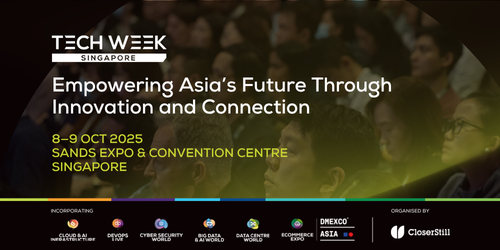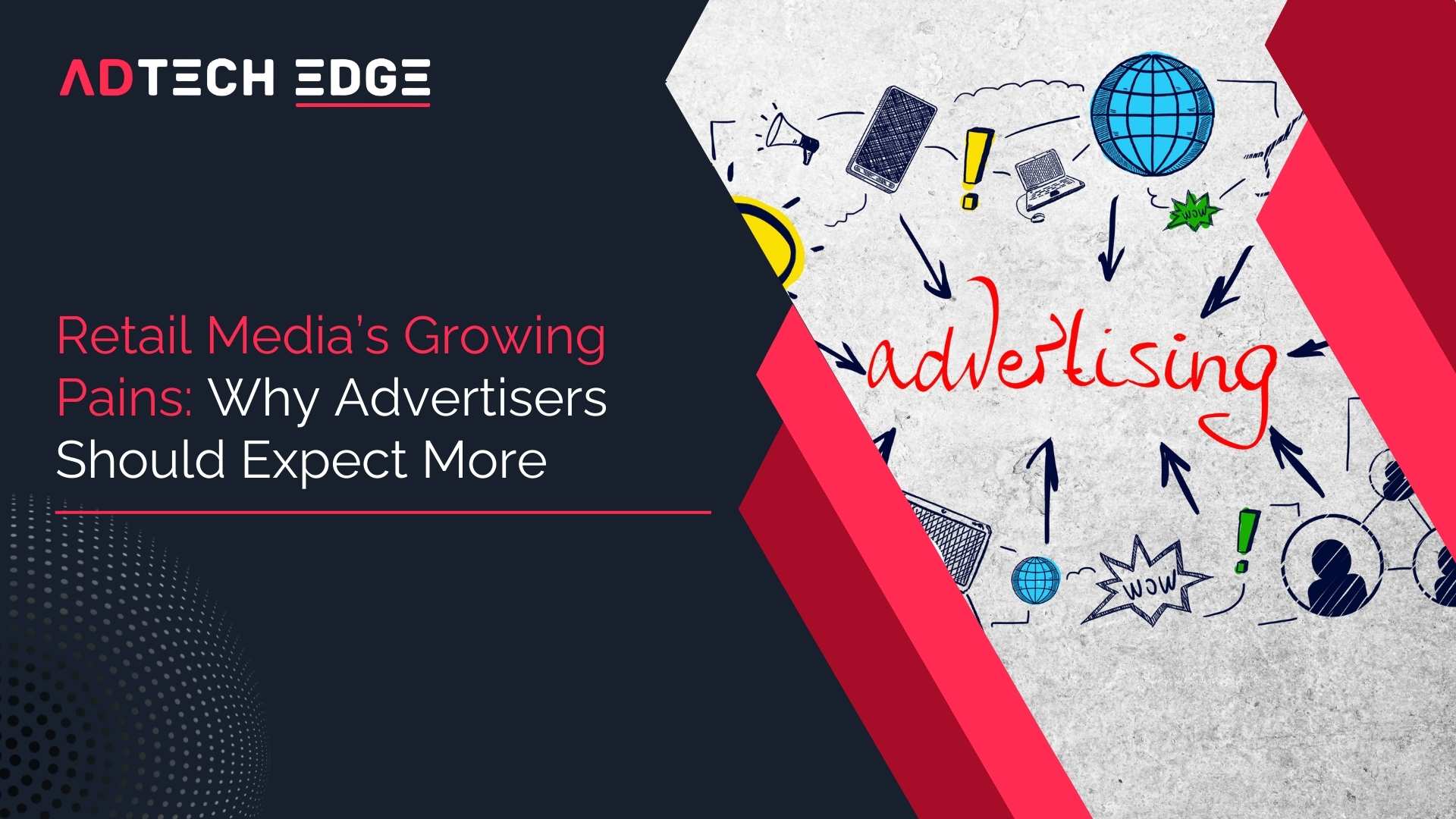1. AI, ML, and data streaming are transforming advertising. What technologies do you believe will define AdTech in 2030?
If I look at where the industry is heading, I’d say AdTech in 2030 will be defined by intelligence, trust, and adaptability working in unison. The technologies shaping AdTech will be less about isolated innovations and more about the orchestration of multiple capabilities into adaptive systems. AI and ML will no longer be used just for optimization rather they’ll evolve into agent-like systems capable of orchestrating entire campaigns, from creative development to real-time budget allocation. We’re already seeing early signs of this with generative ad platforms and reinforcement learning applied to media buying. By the end of the decade, these technologies will become mainstream. At the same time, the role of real-time data streams will grow enormously. Think of connected cars, smart homes, wearables, and other IoT devices, these will feed context into targeting engines in ways we can’t fully do today. But this won’t work without strong privacy frameworks. That’s where federated learning and edge computing come in, keeping personalization powerful while avoiding centralization of sensitive data. Additionally, blockchain-based identity solutions will likely become critical for trust and transparency, especially in verifying audience provenance and cleaning up ad supply chains. AdTech in 2030 will not just be faster and smarter, it will also need to be far more transparent and accountable.
2. What role will immersive experiences (AR/VR/metaverse) play in consumer engagement by 2030?
Immersive experiences will move beyond novelty and become part of mainstream consumer journeys and engagement by 2030. Augmented reality will likely be omnipresent in retail, enabling consumers to interact with products in their physical environments before purchasing. VR and metaverse environments will mature more slowly but will serve as experiential spaces where brands create communities rather than just push messages. What will change is the way we define an “ad.” It won’t be a banner or a pre-roll anymore rather it will be an experience. Instead of static ads, consumers will engage with branded worlds, gamified product interactions, and persistent digital identities. The critical shift will be from “seeing” ads to “living” them, where consumers participate in storytelling rather than being passive recipients. Engagement metrics will shift too; rather than counting impressions, AdTech platforms will measure time spent, depth of interaction, and even emotional response. By that point, immersive engagement won’t just be about hardware like headsets; it will be woven into everyday devices and experiences, creating seamless entry points across online and offline contexts.
3. What new compliance or governance frameworks do you anticipate becoming critical by 2030?
Regulation is going to evolve well beyond privacy. Beyond current privacy regulations such as GDPR and CCPA, new frameworks will address algorithmic accountability, ethical AI use, and environmental impact of digital advertising. If you look at the frameworks today, three big areas are emerging. First is algorithmic transparency; by 2030, advertisers will be required to explain how AI models make targeting decisions, particularly in sensitive sectors. That will push vendors to design explainability into their platforms. Second, cross-border data governance is tightening. Many regions are already moving toward localization, and by the end of the decade, we may see “regional AI stacks” built to comply with local rules. Third, and this is often overlooked, sustainability will come into play. Programmatic supply chains have a measurable carbon footprint, and regulators are starting to notice that. By 2030, I expect advertisers will need to disclose energy use and emissions tied to digital campaigns. Governance will shift from being purely about consumer protection to encompassing transparency, ethical responsibility, and environmental stewardship making compliance a critical element of competitive advantage.
4. How will open web, CTV, and DOOH fit into the future media mix of advertising landscape?
The advertising landscape of future will be shaped by the convergence of open web, connected TV (CTV), and digital out-of-home (DOOH) as complementary channels rather than silos. I don’t see these channels competing rather I see them converging. The open web will remain essential, particularly for discoverability, but it will be rebuilt around privacy-first targeting and contextual intelligence. Connected TV, on the other hand, is set to become the anchor of household engagement. It combines the scale of television with the precision of digital, and adoption rates are only going upward. DOOH is the most interesting of the three because it is being transformed by programmatic buying and sensor data, growing into a dynamic storytelling channel that bridges digital and physical environments. In future, outdoor screens won’t be static rather they’ll be dynamic, context-aware surfaces that respond in real time to location, weather, or audience movement. The real value will come from orchestration: using DOOH to build awareness, CTV to deepen engagement, and the open web to drive conversion. Together, these three pillars will create a triangulated media mix where advertisers can synchronize messages across devices, contexts, and environments, delivering consistency of narrative while adapting to the consumer’s moment-to-moment journey. The brands that succeed will be those who can tell one consistent story across all these channels, while tailoring execution to the consumer’s moment of interaction.
5. What will “authentic engagement” look like in a world where most interactions are mediated by intelligent systems?
In a highly automated landscape, authenticity will hinge on relevance, respect, and reciprocity. By 2030, consumers will be fully aware that AI is curating much of their digital life, so the bar for what feels genuine will be higher. Authentic engagement won’t mean hyper-personalization alone; it will mean personalization delivered with transparency, and choice. We’ll see engagement measured less by clicks and more by voluntary participation and whether these platforms add value without being manipulative. Brands that foster dialogue instead of monologue like inviting co-creation, feedback loops, and shared storytelling, instead of just targeting them, will be perceived as authentic. Intelligent systems will help scale this, but they’ll need to know when to step back and allow for a human voice. In other words, the most advanced technology in the world won’t matter if the consumer doesn’t feel seen, heard, and respected. The core still will remain human: empathy, transparency, and the ability to reflect consumer values rather than simply predicting behaviors.
6. How has the role of AdTech evolved in the last five years, and what lessons should guide the next decade?
Over the past five years, AdTech industry has undergone a major reset. It’s moved from a phase obsessed with scale and efficiency into one centered on trust and accountability. The loss of third-party cookies, the rise of walled gardens, and the push for privacy compliance forced vendors to rethink their foundations. Many pivoted toward first-party data, identity resolution, and contextual intelligence. At the same time, AI and automation became table stakes, enabling more agile decision-making in real time. AdTech platforms have embraced AI-driven optimization and real-time data streaming, enabling advertisers to act with unprecedented agility. The lesson is clear: innovation must be matched with responsibility. Transparency in reporting, fairness in targeting, and clarity in value delivery are now as important as performance metrics. For the next decade, I’d highlight three guiding principles: trust as a non-negotiable, adaptability as a strategy, and value measured beyond impressions, whether that’s contribution to business outcomes or strength of consumer relationship. Trust cannot be engineered solely through algorithms; it must be earned through transparency, consumer empowerment, and accountability. AdTech in 2030 will not be judged only by its ability to deliver impressions or conversions but by its ability to deliver meaningful, ethical, and sustainable value across the ecosystem. It will be remembered not just for how it automated advertising, but for how it rebuilt consumer trust in digital media.
- About Richa Choubey
- About QKS Group
Richa Choubey is working as an ‘Senior Analyst – Research’ at QKS Group, where she is responsible for conducting comprehensive research and delivering key insights across various domains, including Marketing Technology (MarTech), Customer Experience (CX), and Sales Technology (SalesTech). She leads global strategic market analysis, such as SPARK Matrix Analysis, and manages client consulting projects. She also plays a crucial role in QKS’s best practice team, identifying leading companies in the CX and MarTech sectors. Her areas of expertise include strategic research, vendor evaluations, growth and content strategies, trend analysis, consulting assignments involving detailed market mapping, custom market intelligence, technology research, and innovation assessments across diverse industries. Richa has individually led multiple in-depth research projects, with a strong focus on MarTech areas like Multichannel Marketing Hubs, AdTech Platform, Digital Marketing Analytics, Mobile Engagement Automation platforms, Social Media Management Platforms, and Marketing Service Providers. She has also managed several SalesTech research studies, including Customer Success Management and CRM Customer Engagement Centers (CEC). In addition to her research responsibilities, Richa is proficient in content development, having authored several blogs, market insight reports, and articles published on website and recognized on LinkedIn. She has worked with global vendors in MarTech space and has established and maintained strong vendor relationships, secured multiple briefings from industry leaders, and drives high engagement on various social media channels through interactions with industry professionals. Richa also actively contributes to team collaboration and task ownership within the organization, by participating in various initiatives such as AI Maturity Matrix MVP Reports, capability mapping tasks, and vendor-specific strategy presentations. She is known for her collaborative approach, content leadership, and consistent delivery of actionable insights across verticals.
QKS Group is a global analyst and advisory firm helping enterprises, technology vendors, and investors make trusted, data-driven decisions. Our portfolio spans the flagship SPARK Matrix™ evaluation framework, SPARK Plus™ analyst advisory platform, QKS Intelligence™ for market and competitive tracking, and QKS Community™ for CXO leaders and practitioners. All offerings are powered by a Human-Intelligence–driven framework and QKS’s closed-loop research methodology – integrating expert-led insights, quantitative modeling, and continuous validation to deliver credible, outcome-focused intelligence.




